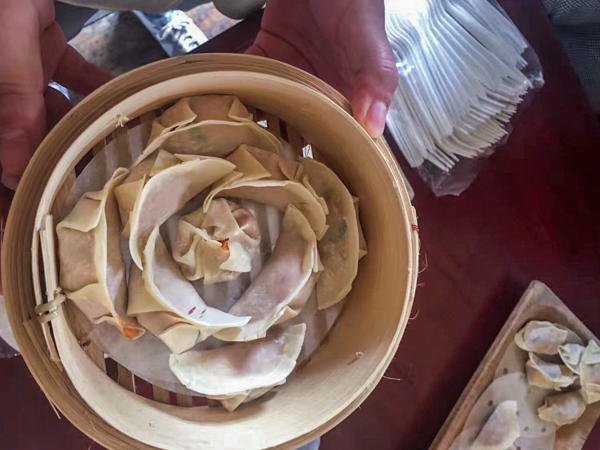The importance of celebrating other cultures is demonstrated throughout the year across campus by the many different cultural societies present. On February 16th, Trinity’s Chinese Students and Scholars Association and Chinese Society celebrated the Chinese New Year, the most important holiday for Chinese people. Tia Zhang and Bessy Zhu of Trinity’s Chinese Students and Scholars Association and Chinese Society sat down with The University Times to talk about their society and the society’s Chinese New Year celebrations.
The Chinese New Year marks the first day of the first month of the traditional Chinese lunisolar calendar, whereas the celebration of the Western New Year is based on the beginning of the Gregorian calendar. This fascinating cultural phenomenon, full of festivities, fireworks and food is, in some ways, similar to the Western New Year, while also differing greatly. It is rooted in many different traditions. This year, the Chinese New Year commences on Friday, February 16th.
When explaining the importance of cultural societies, Zhang gave the example of the impact it has on international students who are very far away from home and feeling homesick. “We’ve been in Ireland for a long time”, added Zhu, “and if we can use our experience to help other Chinese students to settle in and feel more at home, then we’re doing our job”.
Trinity’s Chinese Society want to spread Chinese culture all around campus and bring Chinese students together. As well as that, bridging the gap between Chinese students and Irish students is an important goal of the committee of the society. Zhang expressed her disappointment at seeing students during Freshers’ Week who look interested in their stand, but don’t join out of fear for it only being a society for Chinese students.
Zhu agreed: “It’s not just for us! Yes, we are a cultural society, but it’s a lot more about allowing the other students to partake in and learn about the Chinese culture.” Both Zhu and Zhang want students to know that the society is not only for Chinese students, and anyone that joins will be welcomed with open arms. They hope to attract a range of different students to future events and celebrations.
The Chinese New Year is a time for family and celebrating the many traditions associated with the event. Zhang and Zhu explained how there is no specific way to celebrate the New Year in China and that the traditions differ depending on what region you’re celebrating the New Year in. For example, in the Northern Region, the most notable tradition would be that of making dumplings at the family dinner. Whereas in the Southern region, the focus is on the New Year cake – a sweet rice cake. No matter the region, food plays a major role in the celebrations.
When asked what one can expect from their celebrations, Zhu responded excitedly, “Food! A lot of food is always on the cards for Chinese New Year celebrations, but it’s authentic food, not the type you’d find in your average take-away here in Dublin”. Zhang then explained the disconnect that exists between actual Chinese culture and how the Western world and the media tend to perceive it.
Along with the copious amounts of snacks and drinks, the main event of the day was, of course, the countdown to midnight. The only issue being the time difference of eight hours between Ireland and China, which meant that the countdown was held at 4pm here instead of at midnight. As the clock strikes midnight in China, a spectacular array of fireworks begin to light up the sky, in celebration and an attempt to drive away the evil forces in the atmosphere.
Zhang shared that lighting fireworks with her family is personally her favourite tradition of the New Year celebration and that the tradition dates back hundreds of years and comes from an ancient Chinese myth. In ancient Chinese mythology, it was believed that Nian was a monster that lives under the sea, and comes out at the beginning of Chinese New year to hunt the villagers. According to the myth, Nian is afraid of loud noises, fire and the colour red. So the Chinese decorate their houses with red, and light up fireworks to scare it away. The whole story also represents driving evil and bad luck away and bringing good luck to the new year.
Throughout the year, the society hosts many different events focused on bringing a small taste of China to Trinity. Not wanting to give much away about events following on from the Chinese New Year celebrations, Zhu just advised anyone interested in interacting with the society to wait and see and keep an eye out on their Facebook or Instagram pages.
Looking to the future of their society, Zhang and Zhu both expressed the desire to inspire an interest in people to want to get to know more about their culture, and that they’re more than happy to help that by arranging events and sharing information about Chinese culture and traditions.







